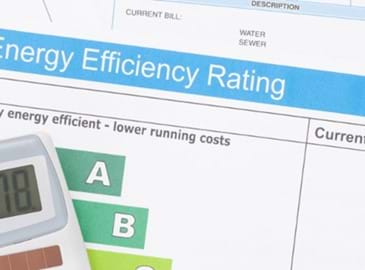7 tips to save money on small business bills
Here are a few tips to help you along with the process and get you saving cash on your bills…
Cash flow. Think of it as the blood of any business. From the biggest fortune 500 company to your local shop, cash flow will determine the success or failure of any business. Why? Because cash flow is all about taking into account money coming in and coming out of your business. So logically, you will want more money coming in than the expenses which goes out.
Is there a way to control this which will ensure that you are always on top of the money coming in? Absolutely there is! But it does require a bit of creative thinking. However, with a little bit of thought, you can keep your cash flow healthy.
Chasing payment. This is one of the frustrations of being a small business owner. Waiting for suppliers or clients to make that payment can be annoying from a personal standpoint. But in terms of cash flow, it can make a significant difference - particularly if you are owed a lot of money, which might mean little to the payer, but could mean a lot to you.
So what should you do? Preempt this and take control. Offer attractive terms before you even begin. You could offer a small discount for anyone who pays early. Yes, this might mean taking a hit (albeit a small one) but it might be worth it, especially if you can have the money in your account quicker. And if early payment is consistent, you won’t have to go through the pain of chasing clients for payment. It will save you time and money.
We hope you don’t need to go down this route - but it might have to happen if clients and suppliers aren’t paying you, and your cash flow is suffering as a result. Make sure you are chasing up with a follow up email to show that you are exerting pressure. If you have a contact then call that person to make sure that they are aware that the money needs to be paid.
And if all else fails, you could hire the service of a debt collection agency to chase the payment on your behalf. It shouldn’t get to this stage but if it does, you need to be prepared because this is all about good cash flow management and preparing for every eventuality.
Take extreme caution doing this. But if you feel that you’re not pricing yourself high enough, compared to your competition, it is certainly worth looking into the possibility of increasing your prices. If you’re offering a service, you could include some additional features to justify the price rise. This will demonstrate that there are tangible additional benefits to your customers rather than trying to get more money from them and offering nothing new in return.
But we stress that you need to be very careful in this territory. Do your homework, so that you are sure that a price increase won’t alienate your customers. Because the last thing you want is something like this to backfire on you.
A great way to improve your cash flow is by not purchasing anything for your business that isn’t necessary. Therefore, it is important to do an audit of your inventory and assets to ascertain whether you are getting the best possible deal from your supplier. And if you find a better deal, you should consider going elsewhere. Really think about what is giving you value and whether you are getting this.
You could consider acquiring new pieces by paying over a period of instalments rather than one lump sum. According to Abby Hardoon from Small Business.co.uk, methods such as “Hire purchase and leasing can be used to fund a range of items these days, including new and used cars, light commercial and heavy goods vehicles, plant and machinery, office furniture and computer equipment”
We have talked extensively about payment as one of the key factors which affect cash flow in a positive or negative way. We wouldn’t be surprised if you were thinking 'Is there a way I can avoid bad customers completely?’ One thing that you could consider is checking someone's credit history before you go into business with them. A prospect might sound keen on the phone, or in an email, but this won’t indicate what they are like when it comes to payment. A credit score will give an indication of what you can expect. A low credit score should be a cause for concern, and question whether you want to deal with a particular client or supplier. After all, do you want to be spending your time chasing an individual who you know isn’t going to pay you in good time?
At Payzone, we support UK small to medium-sized businesses with our range of payment solutions. Find out more about our card machines and get your free quote today.

Here are a few tips to help you along with the process and get you saving cash on your bills…

Undoubtedly one of the most difficult issues that small businesses face today is that of late paymen
Payzone Bill Payments Limited Registered Office: 100 Wood Street, London, England. EC2V 7ER. Registered in England and Wales No. 11310918 VAT Number: GB 172670502. Payzone site uses cookies. Some of these cookies are essential, while others help us to improve your experience by providing insights into how the site is being used. View our Cookie Policy and our Privacy Policy.




Cert No. 9819